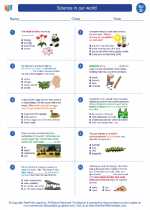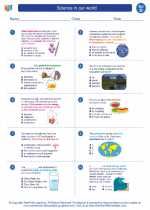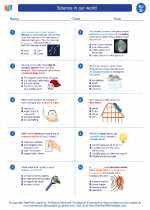Genes
Genes are the basic physical and functional unit of heredity. They are made up of DNA and act as instructions to make molecules called proteins. These proteins perform various functions in the body, such as building and repairing tissues, regulating chemical reactions, and carrying signals between cells.
Structure of Genes
Genes are made up of segments of DNA. The sequence of nucleotides in the DNA determines the specific instructions encoded in the gene. Genes can be found on chromosomes, which are long, thread-like structures located in the nucleus of a cell.
Functions of Genes
Genes play a crucial role in determining the traits and characteristics of an organism. They are responsible for inherited traits such as eye color, blood type, and susceptibility to certain diseases. Genes also influence how an organism grows and develops.
Study Guide
- What are genes made of?
- Where are genes located in a cell?
- What is the function of genes?
- How do genes influence traits and characteristics?
- Give an example of a trait influenced by genes.
[Genes] Related Worksheets and Study Guides:
.◂Science Worksheets and Study Guides Fourth Grade. Science in our world

 Worksheet/Answer key
Worksheet/Answer key
 Worksheet/Answer key
Worksheet/Answer key
 Worksheet/Answer key
Worksheet/Answer key
 Vocabulary/Answer key
Vocabulary/Answer key
